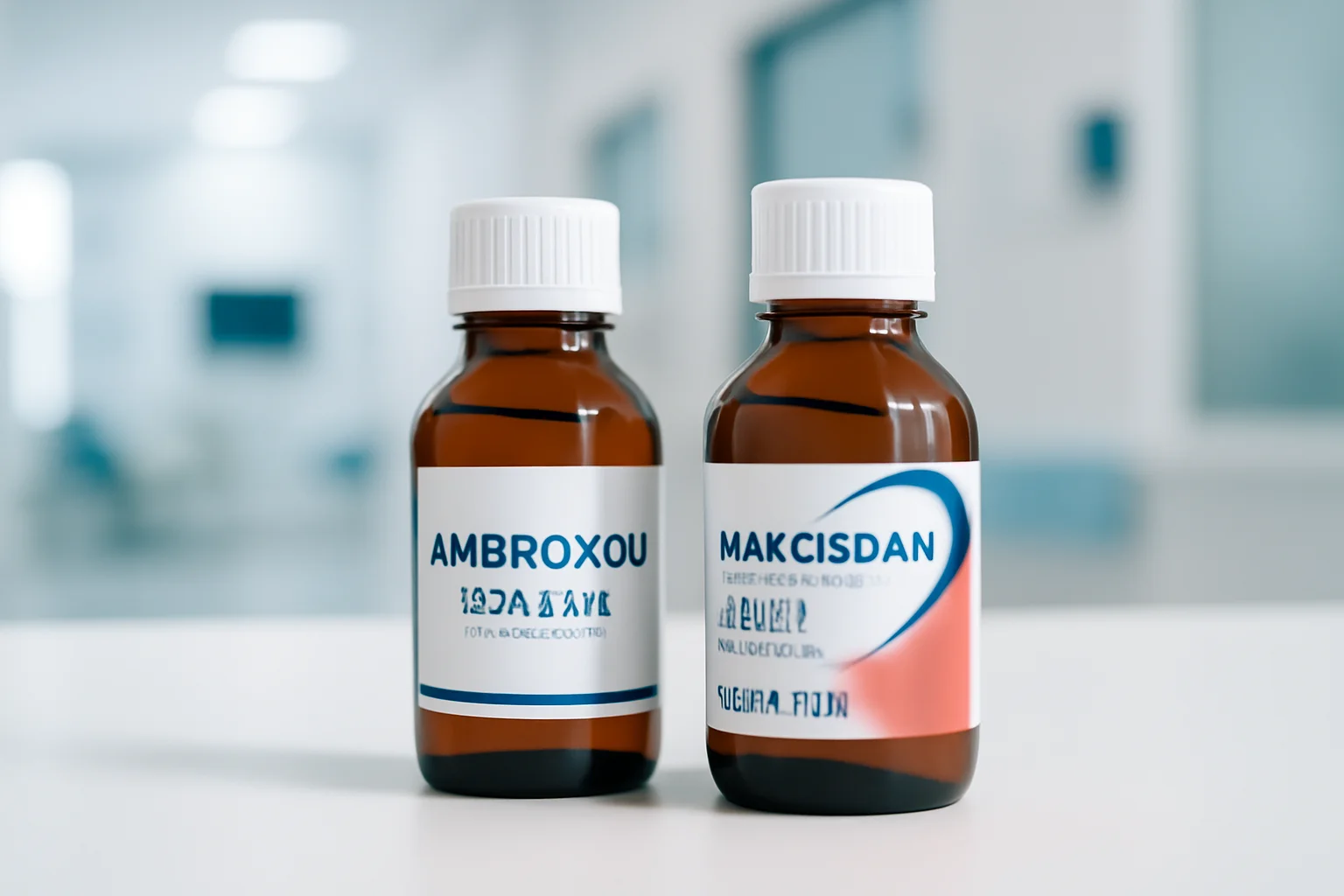
Ambroxol or Mucosolvan: Which is the more effective cough suppressant?
Respiratory diseases, such as colds, influenza, or bronchitis, often cause coughing and mucus accumulation in the airways. These symptoms can be extremely uncomfortable, and many seek effective solutions for clearing the airways. Various medications can help reduce coughing and mucus, but the choice is not always straightforward. Two popular preparations, ambroxol and mucosolvan, are often discussed when it comes to treating respiratory issues.
Both medications have expectorant properties and aim to clear the airways, but they work differently. Ambroxol is an active ingredient that focuses on thinning mucus and alleviating cough, while mucosolvan, which also contains ambroxol, is specifically developed to dissolve and remove mucus. To make the right choice, it is important to understand when and how these medications can be used, as well as to consider one’s own health condition.
The mechanism of action and application of ambroxol
Ambroxol is an effective expectorant that serves to thin mucus in the airways and reduce coughing. Ambroxol primarily acts on the bronchial mucosa, where it stimulates mucus production, thereby aiding in the removal of secretions. Additionally, it has anti-inflammatory effects that contribute to reducing irritation in the airways.
The use of ambroxol is particularly recommended for respiratory diseases when coughing and mucus accumulation make breathing difficult. During treatment, patients typically experience rapid relief from symptoms, as the removal of mucus facilitates breathing and decreases the frequency of coughing.
It is important to note that ambroxol is available in various forms, such as tablets, syrup, or inhalation solution. This allows patients to choose according to their own needs. The syrup form, for example, is often preferred for children, as the taste may be more pleasant for them.
Taking ambroxol is generally safe, but, like all medications, side effects may occur. These can include gastrointestinal disturbances, such as nausea or diarrhea. If any unusual reactions are experienced, it is advisable to consult a doctor. It is also important to adhere to the proper dosage, as overdose can lead to serious consequences.
The benefits and use of Mucosolvan
Mucosolvan is a medication that contains ambroxol and also has expectorant properties. It is primarily used for respiratory infections, such as bronchitis or pneumonia, where the removal of mucus is crucial for recovery. The mechanism of action of mucosolvan is similar to that of ambroxol, as it helps dissolve and remove mucus, but its effectiveness may vary depending on its form.
Mucosolvan is available in syrup, tablet, and inhalation solution forms, allowing patients to use it in the way that suits them best. The syrup is specifically formulated for children and is generally sweet-tasting, making it easier to take. In the inhalation solution form, mucosolvan can be delivered directly to the airways, resulting in a quicker effect.
The use of mucosolvan is recommended under medical supervision, especially in cases of chronic respiratory diseases. Before starting treatment, it is important to assess the patient’s condition and adhere to the appropriate dosage. Side effects may also occur with mucosolvan, such as nausea, vomiting, or gas formation. If the patient notices any unusual symptoms, they should definitely consult a doctor.
Choosing between Mucosolvan and Ambroxol: When to choose which?
When choosing between ambroxol and mucosolvan, several important factors must be considered. First, both medications have similar mechanisms of action, but the form of the active ingredient and the dosage may differ. Ambroxol is available in its pure form, including as tablets, while mucosolvan may contain other excipients that affect its efficacy and tolerability.
It is important to consider the patient’s age and the form of the medication when making a choice. For younger children, syrup-form mucosolvan may be the most appropriate choice, while for adults, tablets or inhalation solutions may be more effective.
In addition, the patient’s overall health condition plays a key role in the decision. If the patient has a chronic respiratory illness, mucosolvan may provide a more effective solution, as it can be delivered directly to the airways. For short-term solutions, such as for colds or influenza, ambroxol may be sufficient.
However, the most important factor is medical advice. Since both medications can have side effects and not everyone reacts the same way to treatments, it is best to consult with our doctor about which medication is most suitable for us.
In treating respiratory diseases, it is important for patients to be informed about the various options and to be aware that seeking medical assistance is necessary to achieve the best results.
**Warning:** This article does not constitute medical advice. Always consult your doctor for health issues.

